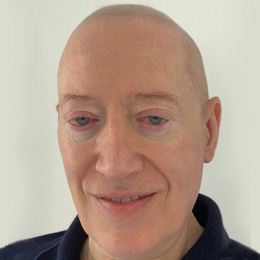
Member of The Faculty, Harvard Medical School
Division of Genetics, Brigham and Women’s Hospital
Professor of Medicine, University of Paris
Dr. Leboulch is a Professor of Medicine (emeritus-active) at the University of Paris-Saclay and at Harvard Medical School, where he remains as a Harvard Medical School Corresponding Faculty Member.
He has served on the HMS Faculty for 15 years in the Genetics Division of the Brigham & Women's Hospital. He was also Unit Director at France's National Institute of Health and Medical Research (Inserm) - France's NIH equivalent -, Founding Director of France’s Institute of Emerging Diseases and Innovative Therapies (iMETI), and CEA’s High Councilor for Medical Innovation. He also served as a Visiting Professor at Ramathibodi Medical School of Mahidol University in Bangkok, Thailand. He was the lead scientific founder of the US Gene Therapy companies Genetix Pharmaceuticals Inc., of which he was its Chief Scientific Officer, and bluebird bio Inc., of which he was co-chairman of its Scientific Advisory Board.
Dr. Leboulch has made pioneering contributions to the field of Gene Therapy and authored landmark publications in high profile journals (Nature, Science, Nature Medicine, New England Journal of Medicine, etc.). He has led the development of bluebird bio’s LentiGlobin vector and protocols that resulted in the first worldwide market approval of ZyntegloTM in Europe and the US for the Gene Therapy of selected beta-hemoglobinopathies. In a Feature Article (“Gene therapy finds its niche”. Nat Biotech 2011;29:121-28), Nature Biotechnology cited Prof. Leboulch’s achievements as one of the 13 most important milestones in the history of the field of Gene Therapy. He is the recipient of a Grand Prize from France’s National Academy of Sciences and other awards, of multimillion dollar NIH and European grants, and has been knighted in France’s National Order of the Legion of Honor.
He has received his MD from the Faculty of Medicine of Paris where he was selected as a Resident in Medicine (Interne des Hôpitaux de Paris). He then pursued a Postdoctoral Fellowship at the Massachusetts Institute of Technology (MIT) before being appointed on the HMS Faculty.

Member of The Faculty, Harvard Medical School
Division of Genetics, Brigham and Women’s Hospital
Professor of Medicine, University of Paris
Dr. Leboulch is a Professor of Medicine (emeritus-active) at the University of Paris-Saclay and at Harvard Medical School, where he remains as a Harvard Medical School Corresponding Faculty Member.
He has served on the HMS Faculty for 15 years in the Genetics Division of the Brigham & Women's Hospital. He was also Unit Director at France's National Institute of Health and Medical Research (Inserm) - France's NIH equivalent -, Founding Director of France’s Institute of Emerging Diseases and Innovative Therapies (iMETI), and CEA’s High Councilor for Medical Innovation. He also served as a Visiting Professor at Ramathibodi Medical School of Mahidol University in Bangkok, Thailand. He was the lead scientific founder of the US Gene Therapy companies Genetix Pharmaceuticals Inc., of which he was its Chief Scientific Officer, and bluebird bio Inc., of which he was co-chairman of its Scientific Advisory Board.
Dr. Leboulch has made pioneering contributions to the field of Gene Therapy and authored landmark publications in high profile journals (Nature, Science, Nature Medicine, New England Journal of Medicine, etc.). He has led the development of bluebird bio’s LentiGlobin vector and protocols that resulted in the first worldwide market approval of ZyntegloTM in Europe and the US for the Gene Therapy of selected beta-hemoglobinopathies. In a Feature Article (“Gene therapy finds its niche”. Nat Biotech 2011;29:121-28), Nature Biotechnology cited Prof. Leboulch’s achievements as one of the 13 most important milestones in the history of the field of Gene Therapy. He is the recipient of a Grand Prize from France’s National Academy of Sciences and other awards, of multimillion dollar NIH and European grants, and has been knighted in France’s National Order of the Legion of Honor.
He has received his MD from the Faculty of Medicine of Paris where he was selected as a Resident in Medicine (Interne des Hôpitaux de Paris). He then pursued a Postdoctoral Fellowship at the Massachusetts Institute of Technology (MIT) before being appointed on the HMS Faculty.
Journal article
CONCLUSIONS: Taken together, the ddPCR technique has the potential to precisely detect LV copy numbers in the host genome, which can be used for VCN estimation, calculation of infectious titer and multiplicity of infection for HSPC transduction in a clinical setting.
Journal article
lovo-cel (bb1111; LentiGlobin for sickle cell disease [SCD]) gene therapy (GT) comprises autologous transplantation of hematopoietic stem and progenitor cells transduced with the BB305 lentiviral vector encoding a modified β-globin gene (β^(A-T87Q) ) to produce anti-sickling hemoglobin (HbA^(T87Q) ). The efficacy and safety of lovo-cel for SCD are being evaluated in the ongoing phase 1/2 HGB-206 study (ClinicalTrials.gov: NCT02140554). The treatment process evolved over time, using learnings...